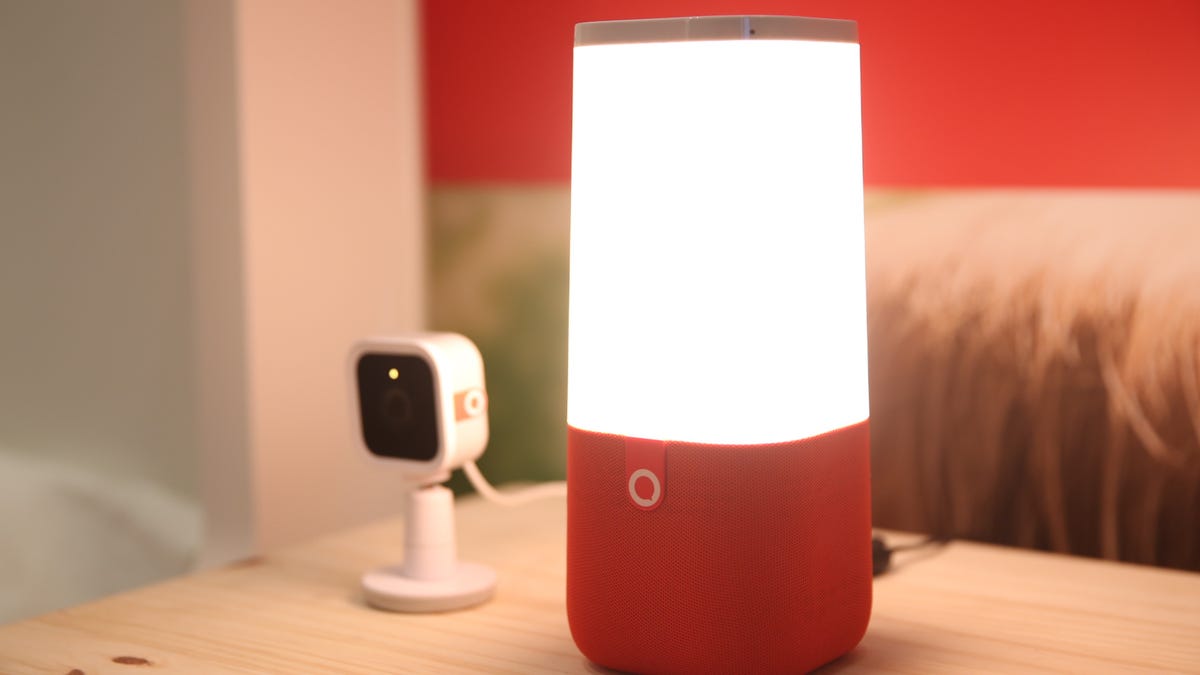 Why You Can Trust CNET
Why You Can Trust CNET I've seen lots of baby tech products at CES. I'm not buying -- yet
Commentary: Parenting is just the latest place where tech is invading our lives. Name a product, and there's a "smart" version, particularly at CES 2017. But few are must-haves.

It was around the time I saw a smart contraction monitor stuck to a pregnant lady's abdomen in the middle of the convention floor that it hit me. This show is going to have way more nifty tech than must-have gear.
The monitor is made by a company in San Francisco called Bloomlife, whose eponymous product sticks to a pregnant mother and, just as you'd expect from the tech industry these days, uses sensors to tell her something about her body. In this case, it monitors contractions and helps a mother-to-be track contractions, both in an active labor and a false one.
Bloomlife doesn't yet have the FDA certification of a medical device.
It's the latest example of the typical tech industry approach: Take an old product (in this case, the bulky monitors strapped on a mother's body in the hospital), make it cheaper and more portable by relying on smaller sensors, and then connect it to an app.
If that's not so much your game, across the way at the Consumer Electronics Show in Las Vegas was a kid's smart alarm clock. A day later, I saw smart thermometers, smart strollers and smart fertility trackers.
It's easy to dismiss many of these products as just another smart fill-in-the-blank. It was hard for me not to scoff, "Really? We need an app to tell a woman when she's in labor? My wife could tell just fine without it."
Here's the thing: They all make sense if you're a techie. But while many of them pass the "oh, that's clever" test, few promise to upend the way I'm parenting today.
As much as I'd like to convince myself otherwise, a normal thermometer is just fine. An app is appealing though, and it means record keeping is easier. Additionally, one company's -- Kinsa's -- aim to use people's data to track the flu around the world is noble. But I won't be worse off without a high-tech temperature taker.
The same goes for many of the other baby tech products, which is probably why tech accounted for less than 9 percent of baby product sales in 2015, according to industry watcher GfK.
That may change. One survey by popular parenting blog The Bump found that 76 percent of moms say they consider technology an important factor when shopping for baby products.
"Tech is a tool -- it's a power tool -- and you have to use power tools wisely," said Harvey Karp, an assistant professor of pediatrics at the USC School of Medicine. He's also the founder of Happiest Baby, a tech startup named after his chart-topping "The Happiest Baby on the Block" book and DVD. Karp was showing off the $1,160 Snoo sleeper bed, which was designed with his teachings in mind.
The Snoo will rock children and use white noise to soothe them, and it's carefully calibrated to respond to baby's needs.
To Karp, the explosion of tech is part of a response to our increasing isolation from one another. Some people are raising kids without help from a large family or a gaggle of friends and neighbors. Some new parents haven't held a baby before their own is born, and they often have little help at home.
"It used to be you had five people living with you, and now if you have a nanny it's extravagant, so parents suck it up and deal with it all on their own," he said. "That leads to exhaustion and marital stress and depression and all sorts of problems."
Karp isn't the only name-brand on the show floor either. There's Fisher-Price, showing a $150 stationary bike called the Think and Learn Smart Cycle that hooks up to a tablet app so kids can pedal their way through virtual adventures.
There's also 4moms, which showed off its Moxi Stroller. It's $699 and screams tech, from its built-in distance trackers to its app-controlled headlights and even a way to charge your phone.
There were also parent-inspired takes on voice assistants, which have become the tech du jour. One is Memoo, a $175 contraption that brings the technology into kids' rooms, letting them play games, learn about the weather and listen to music. Mattel has a competing device called Aristotle, which costs $299 and offers more features, such as a way for parents to spy (nay, check in) on their kids with an included camera.
There will be even more products announced as CES wraps up, but I'll probably be aiming my money at the college fund. For now.

